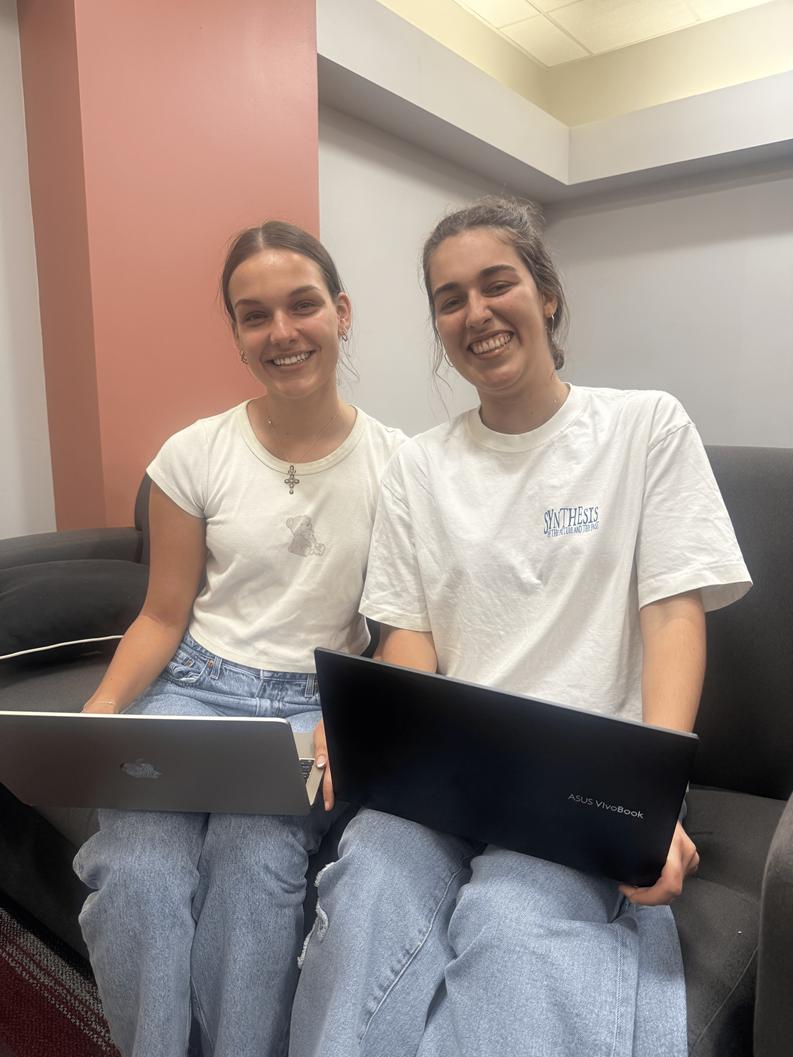An Inside Look at The International Peer Mentor Program
Nuria Rodriguez Ruiz and Isabel Cortes Weiss Find Connection in their Shared Experience of Moving to a New Country
One of the many initiatives and programs run by Global Programs is The International Peer Mentor (IPM) program. The IPM program – originally conceived by the Office of Orientation – “is designed to provide a ‘first friend’ and support and advice for new international students with their transition to BU,” says Amanda Miller, Managing Director, Strategy and Communications, who oversees the IPM program within Global Programs.
The program matches new international undergraduates with a trained student mentor based on their background, academic interests, languages spoken, and hobbies. The mentors – who can be domestic or international students – serve as a resource and have the opportunity to serve as part of a larger support system for international students. From answering questions, to lending a supportive ear, mentors volunteer their time to help create a welcoming community at BU.

For international student Nuria Rodriguez Ruiz (CAS ‘28), who is from Spain and attending BU to study psychology, she has found much support and companionship through the IPM program. Her mentor, Isabel Cortes Weiss (CAS ’27), shares recommendations and helps Nuria navigate questions she has about Boston and the University.
Beyond their shared connections as psychology majors and Spanish speakers, they both know what it’s like to move to an unfamiliar place and start a “new” life there.
Weiss was born and raised in Monterrey, Mexico but moved to Minnesota at age 11, leaving behind a tight-knit community she knew and loved in Mexico.
“I know it can be a really hard change to move countries,” says Weiss. “But it can also be something that benefits you in the long run.”
Weiss attended an international school when she lived in Mexico and enjoyed meeting new people from a young age. “I was a host for students,” she recalls. “We had students from all over the world, so I’ve sort of been doing this since I was super young.”
Ruiz and Weiss also get together periodically and recently planned a trip to the Boston Common to try ice skating, which they described as a very fun outing together.
Ruiz describes the IPM program as “a great opportunity and something I encourage students to do. You’re in the same stage of life, so you understand each other better.”
Likewise, Weiss encourages students to join as mentors and says you do not need to be international to be part of this beneficial program. “I think it’s a great opportunity to connect with people on campus and just feel more involved in the community,” she says. “BU is so big and can sometimes feel isolating because everyone is busy doing their own things, but I think this is an opportunity to help you form personal connections on campus.”
In addition to developing personal connections to their mentees, mentors also introduce them to resources for international students across the University, such as the Compass and First Class.
The Compass is a full suite of resources to support BU’s international community. Academic, community, housing, and career-related resources and information can be found on the Compass.
First Class is an online, noncredit pre-arrival course designed to prepare incoming international students for the transition to BU and the American classroom. It is delivered on Blackboard and is comprised of short videos, written information, and self-checks designed to be completed from anywhere on any device.
These resources, in conjunction with the IPM program, aim to support international students in their first year at BU and deepen connections between students from many different backgrounds and lived experiences. It also gives students who act as mentors the opportunity to grow their skills and involvement on campus.
The IPM program also collaborates with offices across BU who regularly engage with international students, including, among many others, Residence Life, Orientation, the BU Hub, CAS Student Programs & Leadership, Student Health Services, and the Center for Psychiatric Rehabilitation, for both mentor trainings and best practices for supporting students.




